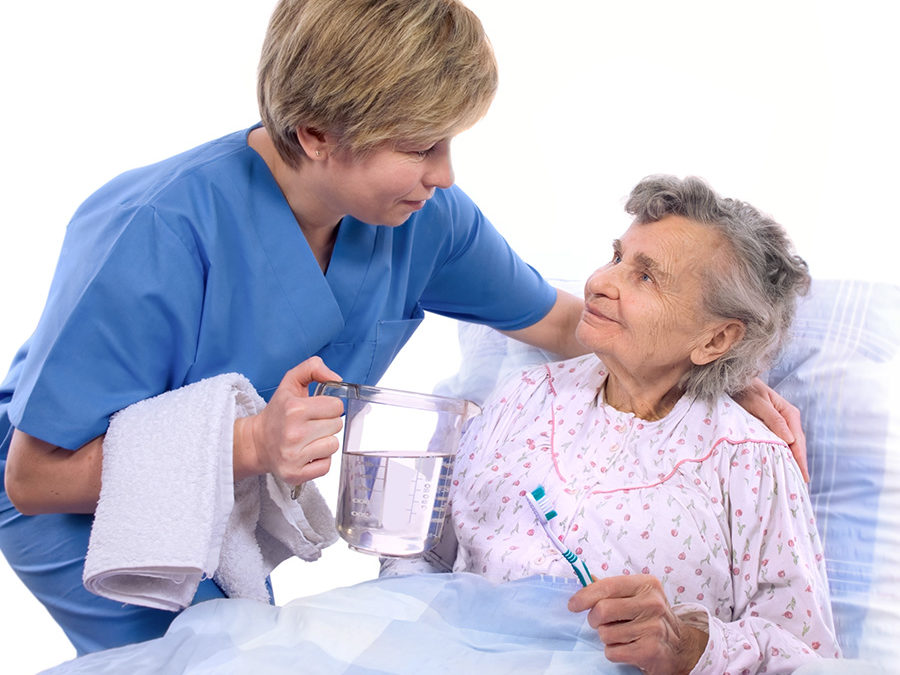There is a lot to dental care like geriatric dentistry in nursing homes. It’s estimated that, in the US, there are almost 2 million senior citizens residing in nursing home facilities, and most residents need help with ‘daily living’ activities, oral hygiene included. A study of five upstate New York’s long-term care facilities that was conducted in 2006 showed that only a mere 16% of residents got any form of oral care, and for residents who did get, tooth-brushing lasted for just only 16 seconds on the average – a lot shorter than the 2 minutes that’s recommended. Elderly citizens are faced with an array of oral health risks just because of what aging really means as per oral health.
Oral health and the elderly
Maybe the major challenge of assisting the elderly in maintaining excellent oral health is the fact that almost 1/3 of residents of nursing homes experience dry mouth. Also called xerostomia, it’s normally an outcome of taking varying medications required in treating anxiety, asthma, dementia, allergies, as well as high blood pressure. As an individual ages, the production of saliva naturally reduces, and the requirement for the medications worsens the situation.
Saliva is the human body’s major means of fighting bacteria buildup in the mouth, and reduced saliva production levels leave elderly residents at risk of periodontal disease, an overgrowth of the gums, as well as tooth decay. Poor oral health has been related to heart disease, increased weight loss rates, and NHAP (nursing home-acquired pneumonia). These are among the foremost reasons why a mobile dental clinic will always visit nursing homes.
What causes the situation to become even more challenging is that;
- Lots of seniors lose all of their dental coverage at retirement.
- Medicare doesn’t cover routine dental care (fillings and cleanings, for instance), and the extent of coverage that’s generally offered by dental services could vary from one state to the other.
- There could be a shortage of expert dental practitioners who pay visits to long-term care facilities.
- Some healthcare staff are overworked or aren’t trained and they have so many residents under their care that oral hygiene or dental care falls way behind dressing, feeding, washing, as well as other varying bodily requirements.
- In the instance of dementias, patients just refuse to let anybody touch their mouth. Research is ongoing to assist nurses and caregivers in this regard.
Whenever you visit your loved one in any facility, make it your habit to examine his mouth to make sure that the most appropriate mouth care is being offered. Tell-tale signs that show that your loved one might not be getting care could be a toothbrush that appears not to have been used in a long time or a toothpaste tube that seems to never get any smaller, visual signs of tartar or plaque buildup, or/and indications from the loved one that he has discomfort or pain in the mouth.
In conclusion, some states feature their own rules regarding geriatric dentistry in nursing homes and the provision of the most appropriate oral care in nursing homes, but there are federal rules that are in place too. You must understand what is required.
